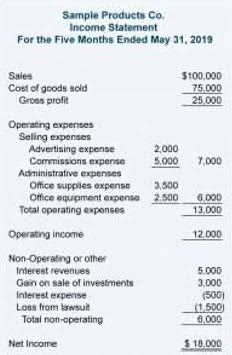Certified Company
ISO 9001 StandardNovember 16, 2021

By implementing these measures, businesses can identify inefficiencies, make informed decisions, and free up resources that can be invested in growth opportunities. As such, businesses that prioritize cost control measures are better equipped to navigate the challenges of today’s business environment and achieve long-term success. Monitoring and evaluating cost control efforts are essential for sustained profitability. By establishing KPIs, leveraging technology, conducting audits, and seeking employee feedback, you can ensure that your cost control strategies are effective and aligned with your business goals.
Challenges In Cost Control
Quality control measures typically involve a systematic approach to identify and correct flaws or defects in products or services. It is important to establish quality standards early in production, before the defects have a chance to escalate in costs. Quality Control is an integral part of cost control strategies, as it ensures that the products meet the expected standards and specifications.
- You’ll be able to dig into long-standing expenses and even discover new ways to allocate resources more effectively.
- This can lead to duplicative efforts, missed opportunities for savings, and a general lack of accountability when it comes to cost management.
- By optimizing payroll management, financial reporting and analysis, and effective invoicing and billing, businesses can reduce costs and improve their bottom line.
- Reducing costs in the healthcare industry is tricky as one wants to compromise on the quality of service they provide.
- By analyzing financial statements, business owners can identify areas for improvement and make informed decisions about how to allocate resources.
- By eliminating bottlenecks, improving workflows, and enhancing process transparency, organizations can reduce costs and increase profitability.
Reduce material expenses

Answers to these questions will give you a clear indication of which aspects of your business you should automate with software. Cash flow, the lifeblood of any business, represents the amount of cash that flows in and out of a… You should consult with a licensed professional for advice concerning your specific situation. It guides you on where to spend, where to save, and how to use your resources to maximize benefits—not just for the bottom line, but for the overall health and growth of your business. Signing contracts remotely with eSignature is a legally valid way for multiple parties to sign documents.
Effective Invoicing and Billing
By identifying areas of inefficiency and waste, businesses can implement measures to optimize resources and reduce unnecessary spending. This leads to improved financial performance and increased profitability.Secondly, cost control programs enable businesses to remain competitive in the market. In today’s fast-paced online bookkeeping business environment, it is crucial for businesses to constantly find ways to reduce costs and improve efficiency. Without proper cost management, businesses may experience financial difficulties, such as cash flow problems or even bankruptcy.
- Balancing fiscal prudence with a commitment to continuous improvement remains essential for holistic organizational development.
- This streamlined approach not only cuts direct costs but also simplifies your procurement processes and reduces administrative work.
- According to a study by McKinsey, companies that prioritize cost control are twice as likely to achieve their business goals as those that don’t.
- Some platforms also include fraud detection functionality so they can flag expenses and spending patterns that may indicate expense report fraud.
- These goals should be directly tied to overarching organizational objectives, ensuring that cost control efforts contribute directly to the company’s strategic vision and financial health.
- Target pricing is a strategy that helps you determine the ideal price point that will allow you to achieve your desired profit margins.
By effectively managing costs, businesses can offer products or services at a more competitive price point, attracting more customers and gaining a larger market share. One of the primary reasons why cost control is vital is because it directly impacts the bottom line. By reducing unnecessary expenses and optimizing resource allocation, businesses can increase their profitability and ensure long-term sustainability. It involves the implementation of strategies and techniques to monitor and reduce expenses, ultimately leading to improved profitability and financial stability. Understanding the importance of cost control is essential for any business owner or real estate cash flow manager who wants to effectively manage their resources and optimize their financial performance. This involves identifying and implementing measures to minimize expenses without compromising product or service quality.

Variance in costs
Optimizing operating costs shapes how businesses grow and thrive, going far beyond simple expense reduction. Success comes from building sustainable practices and cost control creating a culture where smart cost management becomes part of your company’s DNA. The strategies outlined in this guide serve as stepping stones toward transforming your organization’s cash flow management and operational efficiency.

This includes setting clear performance metrics, such as delivery times, quality standards, and pricing. By establishing clear expectations, businesses can hold vendors and suppliers accountable for meeting their commitments. Another technique that can be used to manage inventory is to use inventory tracking systems. These systems can help businesses keep track of inventory levels, reorder points, and lead times, which can help prevent stockouts and reduce the need for emergency orders. Spend data is essential for cost control because it allows businesses to see where and why they are overspending.
Budget management
- Volopay provides customizable controls, allowing organizations to tailor expense management processes to their unique needs.
- Monitoring actual expenses against the budget allows organizations to identify deviations and take corrective actions.
- Businesses are lucky if they manufacture an in-demand and highly popular, but they are also facing a bumpy road ahead if their production process is not cost-effective.
- In order to reap the benefits of cost control, you’ll want to start tracking cost variance.
- By considering different scenarios, the business can ensure that its budget is flexible and can adapt to changing circumstances.
When the cost of goods and services increases, it becomes more difficult to maintain the same level of profitability. This can be particularly challenging for businesses that operate in industries where prices are highly regulated. Project planning is the process of defining the scope, objectives, and deliverables of the project.

News and Insights
Cloud-based solutions have revolutionized the way businesses operate by providing flexible and scalable software and infrastructure services over the internet. These solutions offer numerous advantages, including cost savings, ease of implementation, accessibility, and automatic updates. Enterprise Resource Planning (ERP) systems are comprehensive software solutions that integrate various core business processes and functions into a unified system. These systems facilitate efficient management of resources, streamline operations, enhance collaboration, and provide real-time visibility into business data. Process optimization aims to streamline operations, eliminate inefficiencies, and reduce costs.

